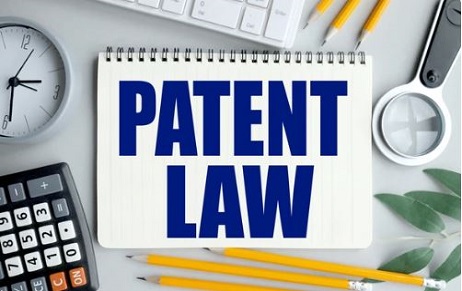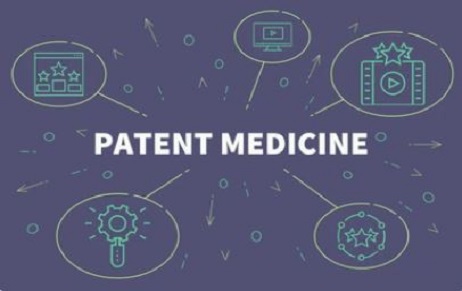INTRODUCTION Whether the Indian pharmaceutical firms are indeed innovating in developing new drugs or just…
Natco Files India’s First Compulsory Licensing Application
Natco Pharma has filed India’s first Compulsory Licensing (CL) Application (in accordance with Section 84(1) of the Indian Patents Act) against one of the Bayer’s patented drug Sorafenib, marketed by Bayer as Nexavar for treating Kidney and Liver Cancer. Patent on Sorafenib is granted in India on 03.03.2008 having number IN 215758. This will be a landmark development of such licensing in India and being a test case would set a precedent for the forthcoming similar cases. The CL Application is published in the Official Journal of the Indian Patent Office and can be seen here.
Section 84(1) of the Indian Patent’s Act allows any interested person to make an application to the Controller for grant of compulsory license after the expiry of three years from the date of grant of a patent on any of the following grounds:
a. that the reasonable requirements of the public with respect to the patented invention have not been satisfied
b. that the patented invention is not available to the public at a reasonably affordable price
c. that the patented invention is not worked in India.
As documentary evidence, Natco has presented a number of facts in support of a prima facie case of reasonable requirements of the public not being satisfied.
Natco has stated in its CL Application that Sorafenib is not manufactured in India but is being imported and sold by Bayer at an exorbitant price in India. The average price of the treatment with Sorafenib per month per patient is Rs. 2, 80, 428/- and almost out of reach of the public. Round Natco has stressed that they will be able to sell the drug for Rs. 8,880/- per month! Natco has shown that at least 30,000 patients are diagnosed with Liver or Kidney cancer every year in India and out of these 99% of patients are unable to afford the drug and die every year.
Further, Natco stated that there is limited availability of the drug and is available only in metros cities, for example, Delhi, Mumbai, Chennai, and Kolkata with the exclusion of second-tier and smaller cities. Also, the distributors of Sorafenib are only in Delhi, UP, Punjab, Gujarat, West Bengal, Bihar, Kerala, and Tamil Nadu. Natco points out that it has a distribution network in almost every city and district of India.
Natco earlier requested Bayer to receive Voluntary License to manufacture and sell the drug in India by writing to them on 06.12.2010. The letter which was submitted along with the Application as an annexure is not available for its analysis. However, it would interesting to note whom the letter was addressed to and by whom was the same reply as the concerned stakeholder to whom a request Voluntary License (VL) was sent could play a role in deciding the reasonable efforts taken by the Applicant to obtain the VL. We believe that the person being contacted should be a person having due authority to make decisions on such matters, be it in the business development team or the Sr. Management team. Contacting any person not having the necessary authority would not add value and would not be construed as making appropriate efforts to obtain a license from the patentee. This however is a general issue and not pertaining to the case in context. Also, as a practice, the request for VL should disclose the proposed terms and conditions by the party trying to obtain the CL, in absence of which, the offer would not be held explicit.
Further, Natco stated in its Application that Bayer refused on 27.12.2010 without any further discussion whatsoever. According to S. 84(6) (iv) which says that one of the factors which Controller will take into account while considering a CL Application is whether the applicant has made efforts to obtain a license from the patentee on reasonable terms and conditions and such efforts have not been successful within six months. Natco’s CL Application was filed on 28th July 2011.
Another important factor that the Controller will take into account while considering a CL Application is the ability and capability of Natco to manufacture and cater to the needs of the entire public. Natco has stated in the Application that it can manufacture 20,00,000 tablets a day when there is a need of 4,80,000 tablets a month. Natco has asserted that it can manufacture the drug by employing existing facilities without the requirement of any additional investment/plant etc. as Natco has been already manufacturing other anti-cancer products for the last 20 years.
Earlier this year, Natco has also sought a voluntary license from Pfizer to manufacture and sell Pfizer’s HIV drug maraviroc (marketed as Celsentri), the application is still pending. It is much expected that Pfizer will decline to give such license owing to high R&D investments incurred and it is quite likely that another CL Application might be coming from Natco soon.
This application by Natco has already started motivating the pharma companies in India in preparing to file CL Applications against patented drugs by Foreign players in manufacturing and selling their generic versions in India. A few of these drugs might not yet even have been marketed and might be in the clinical phase, wherein S. 84 (a) (iii) could be a ground of filing CL in those cases namely the non-working of the patent in India. However, how strong such an application would be on grounds of S. 84 (a) (iii) is debatable as the drug itself is in the clinical phase and cannot anyways be worked upon by any company till the time it is registered with the regulatory authority.
A key point being stressed here is that the first CL Application has not even been granted by the Controller as yet and there is a feeling of urgency that is being felt right away in the Indian Pharma community to file multiple CLs as possible. I wonder how Natco’c victory, in this case, could motivate the Indian generic industry to go ahead with the compulsory licensing. However, it is foreseen that the outcome and the ultimate result of this CL will be long-awaited owing to the expected court battle between the two as the losing party is likely to challenge the decision. One thing is for sure, the grant of the CL to Natco will motivate a large number of Indian pharma players to apply for the same against costly patented drugs (being sold by big Foreign players) mainly on price affordability ground as the Government in many of Indian pharma patent battles has already seemed to be inclined in favor of the generic companies selling cheaper drugs in the public interest.
About the Author: Ms. Meenakshi Khurana, Patent Specialist at Khurana & Khurana and can be reached at meenakshi@khuranaandkhurana.com



